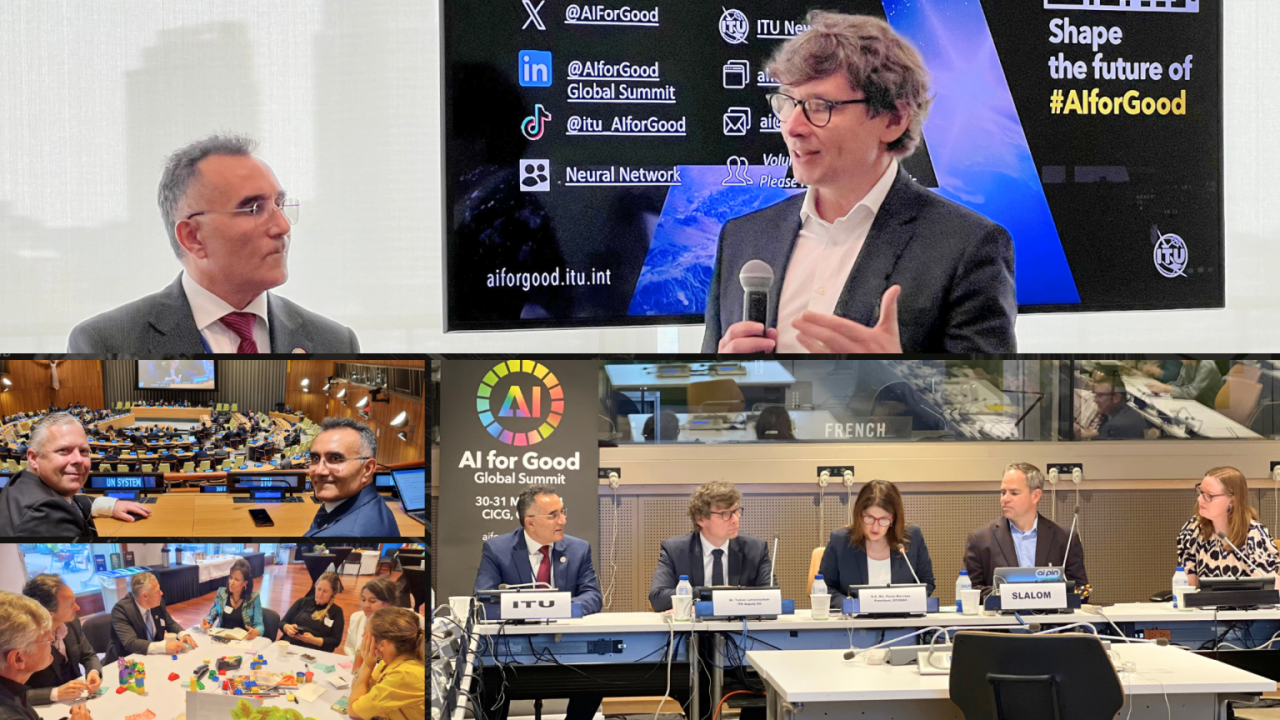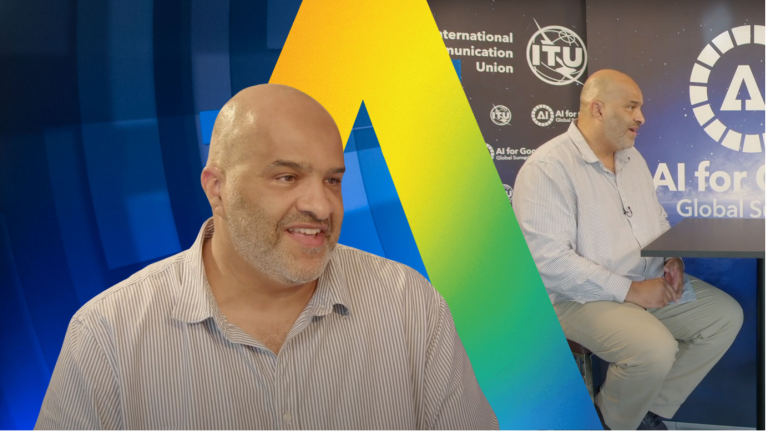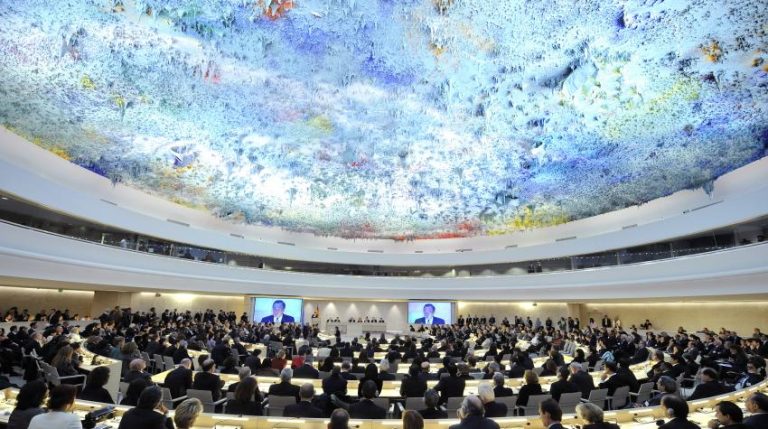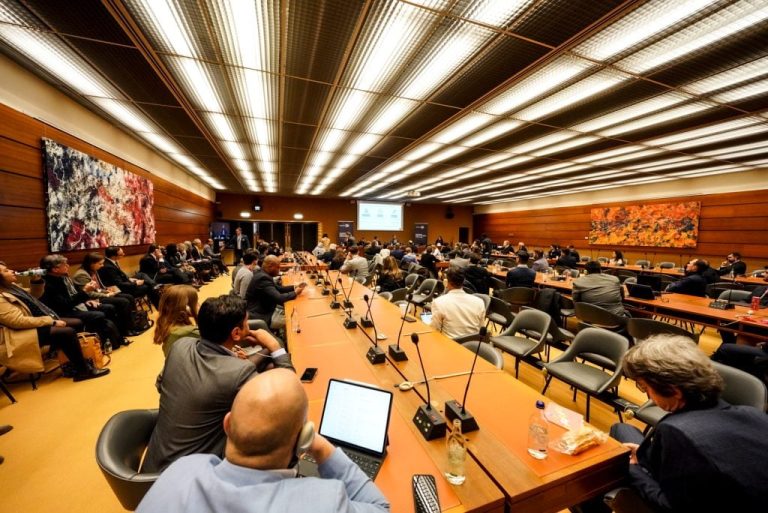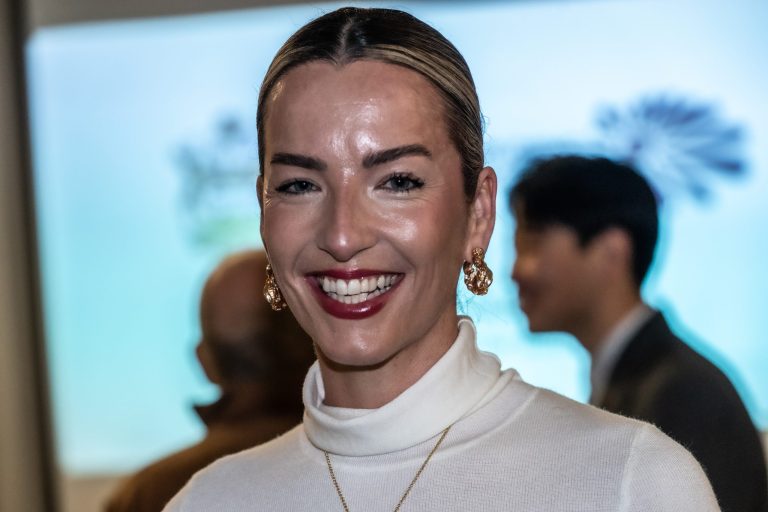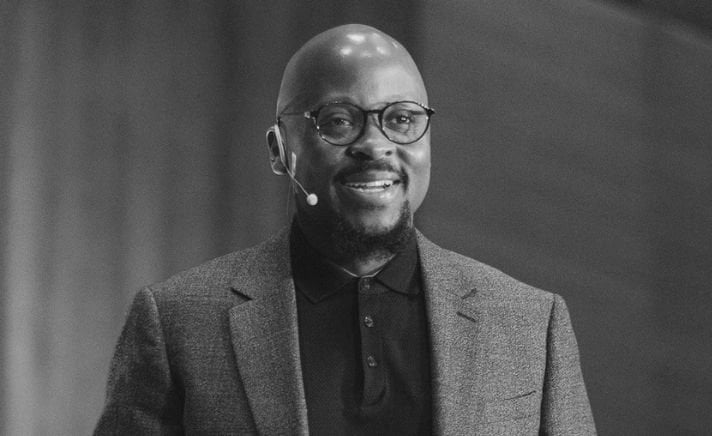Elevating Global Partnerships: Essential UN Initiatives to Propel Artificial Intelligence Forward
Innovation in Action: ITU’s AI Breakthroughs in Early May
In the vibrant month of May, Tomas Lamanauskas, Deputy Secretary-General at the International Telecommunication Union (ITU), along with Bilel Jamoussi, Deputy to the Director and Chief of the Telecommunication Standardization Policy Department (TSB), and Fred Werner, Chief of Strategy and Operations at AI for Good ITU, embarked on a remarkable trip to New York. Together with Ursula Wynhoven, the Director and Representative to the UN ITU liaison office, they engaged in a series of events that highlighted ITU’s groundbreaking initiatives from Geneva and the transformative AI for Good project. A key highlight will be the landmark UN event on AI scheduled for May 30-31, prominently focusing on brain-machine interfaces (BMI).
AI for Good Briefing
On May 6, Lamanauskas and Jamoussi took part in a significant ambassadorial briefing at UN Headquarters, where they were joined by ambassadors from the Permanent Missions of Costa Rica, Guatemala, Japan, and Romania, in addition to representatives from ITU and UNESCO. Nearly 80 ambassadors, alongside UN partners and diplomats, gathered to delve into ITU’s developments in AI standards, capacity building, governance, and the upcoming AI for Good Global Summit. Under the adept leadership of Ursula Wynhoven, who hosted the luncheon, attendees received crucial insights into how emerging technologies are set to dramatically shape global diplomacy, security, and governance. The session also positioned the AI for Good platform as the UN’s premier multi-stakeholder initiative on AI, with contributions from Gabriela Ramos, Assistant Director-General for Social and Human Sciences at UNESCO, showcasing her insights via video remarks.
UN Innovation Leads Retreat
At an engaging two-day UN Innovation Leads Retreat, Werner collaborated with heads of innovation from various UN agencies to collaboratively envision innovation within the UN by 2030. This commitment, although non-binding, aims to foster success by learning from past experiences and aligning with the UN 2.0 agenda. This vision promises to encompass a compendium of emerging best practices from across the UN ecosystem.
Over the past decade, numerous UN organizations have created innovation teams, units, or labs dedicated to experimenting with new methodologies and ideas to accelerate the adoption of innovative strategies. At ITU, we leverage AI for Good as a research and development hub for transformative innovation.
ECOSOC’s Special Session on AI
The ECOSOC Special Meeting on “Harnessing Artificial Intelligence for the Sustainable Development Goals (SDGs)” launched with impactful remarks by UN Deputy Secretary-General Amina Mohammed, featuring insights from Lamanauskas and other respected participants. The dialogue surrounding the use of AI for the SDGs could not be more timely. When harnessed safely, AI can significantly speed up efforts towards achieving the SDGs, improve decision-making processes, and ignite innovation—realities we can harness today rather than far-off possibilities.
With Jamoussi and Werner present, the Special Meeting highlighted how effective governance frameworks can guide the ethical and responsible application of AI technologies in pursuing the SDGs. Moreover, it showcased real-world examples of how AI has been employed effectively in addressing specific SDGs, detailing successful outcomes, obstacles faced, and learned lessons. The gathering also fostered collaboration and knowledge-sharing among a diverse array of stakeholders—including government representatives, international bodies, academic institutions, civil society, private sector actors, technical standards organizations, and AI experts—with a goal of leveraging AI for sustainable development.
AI is already reshaping sectors by optimizing energy usage, improving medical diagnostics, monitoring biodiversity, and expanding educational access, among many other applications. Many observers are beginning to notice the real-world benefits AI brings across various sectors in their countries.
Three crucial messages emerged from the discussions: the necessity for accessibility, equity, and ethical practices in AI. For more details, please check out the official press release.
AI for Good Lab
Inspired by the AI for Good initiative, the AI for Good Lab took a central role at the 9th Science, Technology, and Innovation (STI) Forum 2024. With less than six years remaining to achieve the UN’s SDGs, the lab demonstrated how AI can leverage extensive datasets to propel these global objectives forward. AI for Good is an ongoing digital venue where innovators and stakeholders converge to pinpoint and amplify impactful AI solutions for the SDGs. This initiative, spearheaded by ITU in collaboration with 40 UN sister agencies and co-convened with Switzerland, represents a leading action-oriented, global, and inclusive UN platform dedicated to AI.
The AI for Good Lab, a partnership between ITU, Slalom Element Lab, and the UN Department of Economic and Social Affairs (DESA), was strategically aligned with the ECOSOC Special Session on AI for the SDGs. It provided the UN community in New York with a unique opportunity to experience innovative AI applications that are currently utilized by UN entities to accelerate progress on the SDGs.
The lab began its activities with an introductory phase featuring impactful remarks from influential figures such as H.E. Ms. Paula Narváez, Ambassador and Permanent Representative of Chile to the UN; Tomas Lamanauskas, Deputy Secretary-General of ITU; and Mr. John Tomik, Managing Director of Slalom. Following these introductions, participants engaged in interactive stations that displayed the influence of AI in achieving the SDGs. This hands-on experience facilitated an exploration of AI technologies, enriching their understanding of real-world applications and their broader impact.
Confirmed AI applications showcased at the lab included five from Slalom and five from ITU, UNODC, UNDP, DMSPC, and UNICC, highlighting diverse AI-driven initiatives making a positive impact across areas such as energy optimization, medical diagnostics, biodiversity monitoring, and educational outreach.
The Slalom Element Lab, part of Slalom—a modern consulting firm focusing on technology and business transformation—played a fundamental role in bringing this event to life. The Element Lab specializes in product innovation, software engineering, and digital transformation, aiding organizations in developing, deploying, and managing software applications. Their expertise in digital solutions was evident throughout the interactive demonstrations at the lab.
These diverse activities and conversations underscore AI’s pivotal role in advancing the United Nations’ SDGs. Together, these efforts epitomize a collective ambition to harness AI’s capabilities to confront global dilemmas by showcasing viable case studies and encouraging knowledge exchange among stakeholders from government, international organizations, academia, civil society, and the private sector. As we look forward to the forthcoming AI for Good Global Summit on May 30-31 in Geneva, we find ourselves at an exciting juncture where building on this momentum can yield breakthroughs, particularly concerning brain-machine interfaces as we explore AI’s transformative potential for sustainable development. This summit is poised to be a significant event in propelling AI toward the collective good, reiterating that AI is not merely a future concept but a current phenomenon brimming with opportunities for meaningful change.

